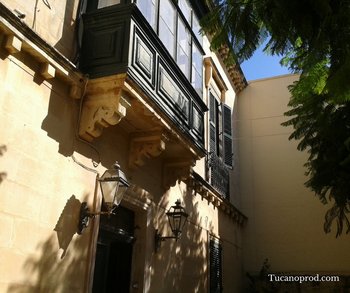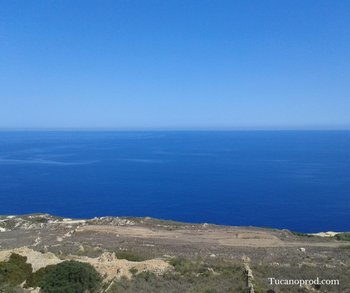[toc]
All details of Maltese company formation: costs, list of necessary documents and the taxation of Maltese companies. Info on the dividends tax-free withdrawal. The process of forming a Malta company from the first step to the successful operation and company management in Malta.
The reason and main benefit of the company formation for foreign operations in Malta is the effective 5% tax burden. This post contains information for those entrepreneurs, who wish to have a company in Malta to plan their taxation.
It ‘s nice to know that I had and have Maltese company and I helped individuals and organisations during the forming process of dozens of Maltese companies, holdings, foundations and trusts. I waited endless hours in Maltese offices and banks during researching the practical knowledge on immigration programs or the bank account opening. Then I marketed this solution as a local expert of the market-leading Central European company service provider. So, don’t be surprised, when I mention issues, which looks like useless at first sight, this post contains all details. And your venture’s success will depend on details.
Basic requirements of the company formation in Malta
There are three popular company types to form in Malta:
- Private limited company
- Public limited company
- Holding
However, the most common and convenient option is to open a private limited company.
The most important requisites of the company forming in Malta:
- At least one shareholder
- One Director
- One Secretary.
- Either the Director or the Secretary must be Maltese resident but the best choice is when both of them are well-known residents.
Why people form companies in Malta?
The most beneficial feature is that the real tax burden is only 5% for Maltese companies, if:
- the owners do not live in Malta
- 90% of the operations happen in other jurisdictions and not in Malta.
Of course, Malta is the perfect island location for commerce, online gambling, registration of luxury yachts and private jets. Businessmen from all over the world are coming to Malta to look for business solutions in the Schengen area of the European Union for a more than affordable price.
As the collection and delivering of financial data under the CRS (AEoI, BEPs and other acronyms) have started already, the interest increased quickly for an EU low tax jurisdiction.
It`s never a bad option if you can legally pay low taxes in an EU Member State. Not only the businessperson, who are looking for legitimate solutions but the experts of foreign and offshore financial centres are all researching Malta. Because the tiny nation managed to maintain its low-tax system without any problems and changed its bright offshore structure of the 80s to a modern financial centre of the millennium. In addition, intellectual property taxes have been set so low, that it generated a new business of the royalties in Malta. The reason for the success of the maltese tax policy is the partly territorial regime. It means that not domiciled residents do not have to pay tax on their foreign sourced income.
 The practical solution is of course, not so simple but this is the principle for temporary residents. This system contributed a lot to Malta’s economy and created the possibility for the Maltese people to become a banker or lawyer and not only farmers or fishermen. We also must mention that the unemployment is almost unknown in Malta (the global financial crisis as well) and the island nation is always among the top three EU Member States, regarding GDP growth.
The practical solution is of course, not so simple but this is the principle for temporary residents. This system contributed a lot to Malta’s economy and created the possibility for the Maltese people to become a banker or lawyer and not only farmers or fishermen. We also must mention that the unemployment is almost unknown in Malta (the global financial crisis as well) and the island nation is always among the top three EU Member States, regarding GDP growth.
I also must let you know, that the unemployment is almost unknown in Malta (the global financial crisis as well) and the island nation is always among the top three EU Member States, regarding GDP growth.
Are Maltese happy with foreign company founders?
Not aloud. the Maltese are delighted when millionaires arrive and they are not too happy, when not so rich people want to start the business from over-regulated jurisdictions. The local people are very kind but they love to protect their interests and they will never take risks for their clients.
Moreover, they are rich, so it is very difficult to impress them unless someone has a forest because no one in Malta can own any. Naturally, those who come from the European Union can set up their companies smoothly, without any distinction.
Citizens of the Commonwealth also love Malta, especially South Africans and Australians, they often set up a company or invest for the citizenship. Eastern Europeans from outside the EU often complain about the endless due diligence process, but no Maltese company service provider will accept an unknown customer, even in the case of a lot of money.
The business with Maltese people
Malta is a very small country where everybody knows everyone in the company service providing industry. Even I know almost everyone, although I’m not Maltese, and I’m not always here, but the news keeps on coming. That`s why it is possible to wear a grey or black hat in Malta but not worth it because the business community is small enough to spread the news faster than you think. On an exculpatory basis, all lawyers and accountants are relatives and/or classmate to others, including tax inspectors and customs officers. So it’s not a big thing to be nicer than the Maltese, but you never will be smarter on their own island. This is a very important advice I think.
But I do not want to discourage anyone, indeed! This is how the island works, so foreigners have the money in a safe jurisdiction since Malta is not Cyprus and not Uruguay, there is no bank holiday, everything must be done in the safest possible way, where the Maltese are paying attention to the interests of the client. Additionally, planning tax with Maltese experts is a simple joy and works well in the case of financial services.
Malta is not an offshore financial centre
Malta is not an offshore location anymore (to tell the truth, there are no more classic offshore financial centres at all). Malta is a Member State of the European Union, exactly the same rules apply to Maltese companies as well as those in any other Member State. Fortunately, the Maltese tax system creates a much “more entrepreneurial” environment than the other, high taxed EU member states due to its historical circumstances. Until a resident, investor or owner of a Maltese company obeys the Maltese laws, he/she may live a happy and free life under the merchant nation`s favourable taxation rights. So once again, the point is: as long as you follow the laws.
Practical Steps of the Maltese Company Formation
First of all, you should find a company service provider. Naturally, all such service providers speak English. There are several exceptional experts on the island. (I know the most experienced professionals, just let me know if you need advice). It is also important to find the right company service provider, who can help the clients even in niche sectors. Not everybody knows the gambling business, or the yacht registering or international trade. One more important issue: you should have also the right person to recommend you, to give a reference. Not all Maltese lawyers are happy to meet new clients, who just knock on the door.
How much does the Malta company formation costs?
 The current competitive cost for establishing a business in Malta is between 1500 and 5000 euros. In the case of particular and individual preferences/issues, the cost will be closer to the higher amount. You have to pay close attention while choosing the right service provider; otherwise, there can be awkward surprises. For example, in a recent case, the company service provider asked for only an annual thousand euros for maintaining the Maltese company but forgot to mention that the client should pay an additional 900 euros/quarter or the Vat filing process. Meanwhile, other competitors don’t even charge a fee for quarterly VAT tax return management.Moreover, some agents offer Maltese company foundation for 250 US dollars, and we can say, that this amount, in reality, will not cover the legal and agency costs. It is vital to find the right service provider, who not only understands your business but also has a good network of contacts. Multilingual (Russian, Arabic, German, Portuguese, Spanish, Italian, Chinese, etc.) service is absolutely available in Malta. And it is important because mediating between a Chinese and a Maltese accountant is not the most wished task, but the operations will need day by day communications, for sure. A traditional Maltese service provider provides additional advantages as business and investment opportunities that are rarely heard in other countries.
The current competitive cost for establishing a business in Malta is between 1500 and 5000 euros. In the case of particular and individual preferences/issues, the cost will be closer to the higher amount. You have to pay close attention while choosing the right service provider; otherwise, there can be awkward surprises. For example, in a recent case, the company service provider asked for only an annual thousand euros for maintaining the Maltese company but forgot to mention that the client should pay an additional 900 euros/quarter or the Vat filing process. Meanwhile, other competitors don’t even charge a fee for quarterly VAT tax return management.Moreover, some agents offer Maltese company foundation for 250 US dollars, and we can say, that this amount, in reality, will not cover the legal and agency costs. It is vital to find the right service provider, who not only understands your business but also has a good network of contacts. Multilingual (Russian, Arabic, German, Portuguese, Spanish, Italian, Chinese, etc.) service is absolutely available in Malta. And it is important because mediating between a Chinese and a Maltese accountant is not the most wished task, but the operations will need day by day communications, for sure. A traditional Maltese service provider provides additional advantages as business and investment opportunities that are rarely heard in other countries.
Selecting the right name for a Maltese company
Required in advance as the first step and the service provider will check whether the imaginary name is available.
Paid-up capital
The minimum capital required to set up a private limited liability company is € 1165. If it is the total money, then all this must be paid up.
Necessary documents for the Maltese company formation
The most important documents for the foundation of Maltese companies are the Memorandum and Articles of Association.
These must include:
- The type of company,
- Name and address of all shareholders,
- The name of the Maltese company,
- The address of the registered office of the Maltese company,
- The activities,
- The capital,
- The number and the name of the directors,
- The name and address of the company’s secretary.
You may also need the copies of the documents required to determine the identity of the directors and secretaries (ID card, address card, passport.) Moreover, it will be useful to have a professional recommendation from a respected person, who may be a lawyer, accountant, public servant, etc. And you will need bank references as well, prepare your banker in advance. The bank reference is not the same as the SWIFT reference, which you always must have for opening a Maltese bank account. This one is a short text, signature, stamp.
Personal presence during the process in Malta
During the company’s formation process, the shareholders do not have to travel to Malta personally. So, your agent can finish the operation with authorisations or with a simple PoA (Power of Attorney). Of course, it is better to be present in Malta physically to set up the firm because Malta is a lovely place, the sun shines in winter and even stronger in summer.
The formation of the company usually lasts for three days, if you submit the documents Monday morning, the magic day will be Wednesday. This, of course, can be longer, but the three days time-frame should be enough in most cases.
What happens after the formation of a Maltese company?
Once your lawyer managed to register your Maltese company, you can start collecting the additional permissions. Perhaps, you will need a business license, depending on your activity, such as gambling and sports betting. VAT is required, i.e. the VAT number. This can also be requested electronically, but sometimes the VAT Department of the Inland Revenue would like to meet you(or your representative) personally. It is not so comfortable; I would like to suggest to prepare yourself. You should know everything, regarding your companies international activities. Then the IR will issue the Maltese and the EU VAT number after a few days. You must also obtain the document (of critical importance) that the company is entitled to tax refunds because 95% of its activity goes beyond Malta.
Then the IR will issue the Maltese and the EU VAT number after a few days. You must also obtain the document (of critical importance) that the company is entitled to tax refunds because 95% of its activity goes beyond Malta.
Taxation of companies established in Malta
Companies based in Malta may submit their audited books up to nine months after their financial year has ended. The costs of the audit start from 1000 euros/year, but it depends on your accountant, the number of delivered invoices, etc.
It is important that during the year, there is only one audit, but you must submit your VAT tax return quarterly. There is no corporate tax in Malta, but you must pay up the 35% corporate income tax (imputation credit), and they will refund you the 30%.
The Maltese tax system is based on the “full imputation” system. This beautiful expression means that shareholders can claim a refund as the dividend from the paid-up tax of the company. The refund can range from 2/3 to 100 percent.
Practically, the shareholder receives 30% of the paid up 35%. If your activity meets the criteria (and why not), then within six weeks, the reimbursed amount will arrive on your bank account. It means, that when the company pays the tax, the refund will come in June.
Counting the effective Maltese tax
If the company pays 35% tax, then the effective tax burden will be only 5 percent (6/7). If the company pays 10% tax instead of the usual 35%, then it will receive 5/7, and if the company receives income from royalties and interest, it will get 2/3. (Holdings do not pay taxes).
Opening a bank account for a Malta company
The law does not oblige the Maltese businesses to have a Maltese bank account. However, they must have anyway. Quite a lot of company service providers will not even deal with customers without a personal Maltese bank account. This issue is important because this is the most difficult step of establishing anything in Malta and bank does the due diligence instead of the service provider. If you have a personal bank account in a Maltese bank, it will be easier to open the bank account for the Maltese company. Because in Malta, it is complicated to open a bank account for companies. I know, that there are exceptional individuals, who can reach it in 10 minutes, but the truth is, that opening a bank account in Malta for business will take 1-6 months, at least. But it can easily take even a whole year if you do not push it all the time.
 The most important previous step is that all shareholders must visit their bank at home, before arriving in Malta. There they should tell the manager (or private banker) that a SWIFT request will arrive from Malta in English. (in electronic form inside the EU and envelope for third countries, like US, Canada, etc.)
The most important previous step is that all shareholders must visit their bank at home, before arriving in Malta. There they should tell the manager (or private banker) that a SWIFT request will arrive from Malta in English. (in electronic form inside the EU and envelope for third countries, like US, Canada, etc.)
When the stakeholders signed the necessary documents in Malta, the bank will send the SWIFT reference request to the local banks. This is the moment when you must inform your bank that the reference request is on its way, then keep on calling them, until they answer and send the text back electronically and the printed version in an envelope as well.
Importance of the SWIFT reference
If you think that I am overreacting the difficulty of opening a Maltese bank account, then you are wrong, I am helping you right now to save at least six months time. There are financial institutes, which just do not provide the SWIFT reference for their loyal clients (there is one Maltese bank, which asks for the SWIFT from the new customers but not gives it to you when you need that elsewhere). If you open a new bank account in a bank to be able to send the SWIFT, then it is nice to know that you have to a client for at least one (but rather three) year in the referral bank. Maltese banks are very cautious; it is no coincidence that Maltese financial institutes have enough capital and have not been affected by the winds of the global financial crisis.
Maltese banks
My suggestion is that at the time of the registration of your business, you should start the opening process of a local bank account and open immediately another bank account in abroad. By the time your Maltese bank account will start operating, you can use the foreign one. There are many banks in Malta, but according to my experience, the best banks for corporate bank account opening are the Bank of Valletta and BANIF.
HBSC is asking for funny requirements if you are not local (and not), e.g. one million euros turnover, etc. The Mediterranean is an online bank, so you can only transfer, no cashier service. Naturally, there are leading financial institutes in Malta, but most of them are specialised to other activities. If you hear a good, reasonable and fast banking solution in Malta, just let me know, please. Now you know, how important it is. (After publishing the Hungarian version a very kind lady informed me about the “Papaya”. There you can open private and corporate accounts as well)
Are you interested in forming a Maltese company? My colleagues are waiting to provide the best service for you. Just let me know about it here!







Leave A Comment